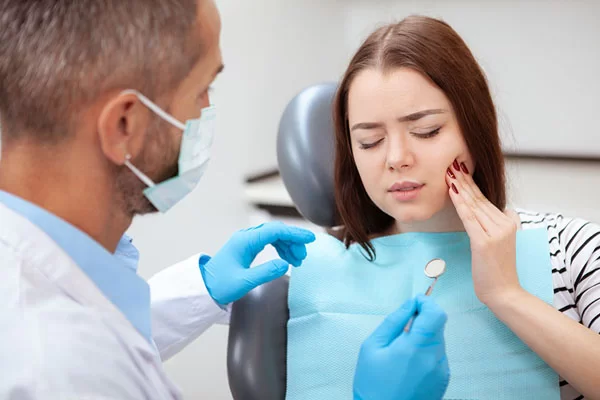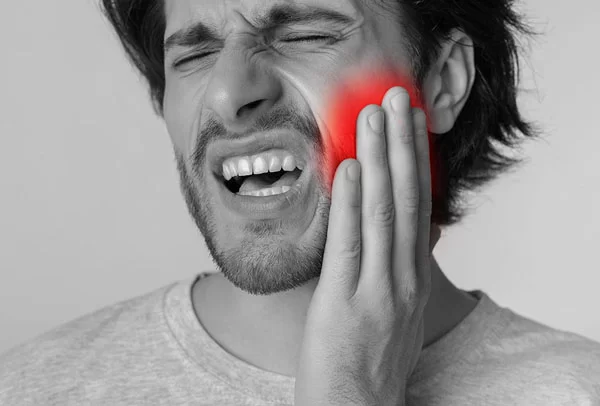Struggling with Jaw Pain? Let Us Help You Find Relief
Enduring jaw pain or stiffness can greatly impact your daily life, making it difficult to eat, speak, or smile with ease. If you’re facing TMJ-related challenges, our skilled dentists in Wilmington and Seaford, DE, are ready to assist.
Call our Wilmington office at (302) 999-7600 or our Seaford office at (302) 536-7589 to schedule a consultation and take the first step towards alleviating joint pain and improving joint function for a more comfortable life.
What Is Degenerative Joint Disease?
Degenerative joint disease, also known as osteoarthritis, is the most prevalent form of arthritis. This condition arises when the protective cartilage that cushions the joints deteriorates over time due to normal wear and tear, injury, or the natural aging process. When this degeneration occurs in the temporomandibular joint (TMJ), it can result in joint pain, stiffness, and diminished joint function in the jaw.
In instances of TMJ osteoarthritis, the erosion of cartilage leads to bone-on-bone contact, triggering inflammation and discomfort in the affected joint. Early detection and treatment are crucial to relieve pain and prevent further joint damage.
Common Causes of TMJ Degenerative Joint Disease
There are several contributing factors to the development of TMJ degenerative joint disease, including:
- Aging: As people age, cartilage naturally undergoes wear and tear, increasing the risk of joint disease.
- Joint Injury: Trauma from jaw fractures or dislocations can expedite the breakdown of cartilage, leading to joint damage.
- Jaw Overuse: Repetitive habits such as teeth grinding, clenching, or excessive chewing can strain the temporomandibular joint.
- Genetics: A genetic predisposition to osteoarthritis or joint disease can elevate the likelihood of developing TMJ issues.
- Weight Gain: Carrying excess weight can exert additional pressure on weight-bearing joints, including the TMJ.
Symptoms of Osteoarthritis in the TMJ
Experiencing symptoms of osteoarthritis in TMJ can vary, but they often include:
- Jaw joint pain or tenderness
- Joint stiffness affecting the jaw muscles
- Clicking, popping, or grinding noises when moving the jaw
- Limited range of motion while opening or closing the mouth
- Headaches or earaches
- Discomfort or fatigue in the facial muscles
- Swelling around the affected joint
If these osteoarthritis symptoms sound familiar, contact our Wilmington office at (302) 999-7600 or our Seaford office at (302) 536-7589 for a comprehensive evaluation.
Treatment Options for TMJ Degenerative Joint Disease
Managing TMJ degenerative joint disease involves strategies to relieve pain, enhance joint function, and prevent further joint damage. Based on your condition’s severity, your dentist may suggest:
- Pain Medications: Over-the-counter options like ibuprofen or acetaminophen can help alleviate joint pain and reduce inflammation. In more severe cases, muscle relaxants or corticosteroids might be necessary.
- Physical Therapy: A physical therapist can guide you through exercises designed to improve jaw mobility and strengthen the muscles around the affected joint.
- Oral Appliances: Utilizing a splint or mouth guard can help minimize stress on the temporomandibular joint and protect against cartilage wear and tear.
- Low-Impact Exercises: Engaging in gentle activities such as yoga or stretching can help preserve a healthy range of motion in the jaw.
- Jaw Surgery: If conservative treatments don’t work, surgical options such as arthroscopy or joint replacement may be considered.

Frequently Asked Questions
While completely preventing degenerative joint disease is not feasible, you can lower your risk by maintaining a healthy weight, minimizing excessive jaw movements, and using a mouthguard if you grind your teeth.
TMJ disorders, including degenerative joint disease, are quite prevalent, affecting over 10 million individuals in the U.S. each year.
Physical therapy, splints, and pain medications are typically the initial treatments. In chronic cases, surgical interventions might be considered to relieve pain.
Find Relief from TMJ Symptoms in Wilmington and Seaford, DE
Don’t let jaw pain or stiffness hold you back. Degenerative joint disease is a chronic condition, but with the right treatment plan, you can manage your symptoms and regain your quality of life. Call our Wilmington office at (302) 999-7600 or our Seaford office at (302) 536-7589 to schedule your consultation today. We proudly serve Wilmington, Seaford, and the surrounding communities in Delaware.


